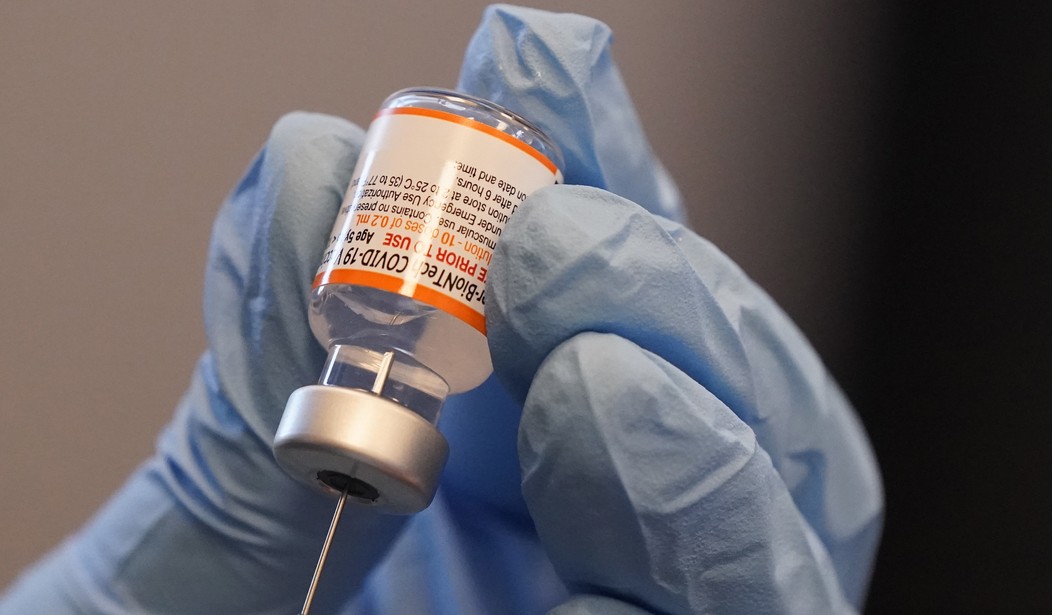In the states and cities where immunity passports are still required, people have been told that they need to be “fully vaccinated” to be in compliance. For most people, that means two initial shots spaced three (for Pfizer) or four weeks (for Moderna) apart followed by a booster shot roughly six months later. Of course, those definitions have been changed by the CDC on a regular basis. They recently suggested that the boosters should be given as soon as four months after the initial injections because people’s immunity was fading too quickly. But now they’re even walking back the spacing of the initial two shots, at least for some people. The CDC “quietly” changed their recommendations yet again this week, suggesting that otherwise healthy patients under the age of 65 should wait up to two months between the first two shots. Would you care to make up our minds for us? (Associated Press)
Some people getting Pfizer or Moderna COVID-19 vaccines should consider waiting up to eight weeks between the first and second doses, instead of the three or four weeks previously recommended, U.S. health officials said.
The Centers for Disease Control and Prevention on Tuesday quietly changed its advice on spacing the shots.
CDC officials said they were reacting to research showing that the longer interval can provide more enduring protection against the coronavirus. Research suggests that 12- to 64-year-olds — especially males ages 12 to 39 — can benefit from the longer spacing, the CDC said.
The immediate reaction among many people will no doubt be to ask if getting the second shot too quickly is turning out to be dangerous. There may be an element of that in a small subset of people as we’ll get to in a moment, but it seems to be mostly related to efficacy. For reasons that aren’t made entirely clear, testing by Pfizer and Moderna has shown that patients who held off for two months retained their immunity for significantly longer than those who rushed out for the second dose after three or four weeks.
The CDC also made the startling admission that patients, particularly younger males, who wait two months “may diminish… a form of heart inflammation seen in some young men.” Anything that further reduces the risk of side effects is a good thing, I suppose. But if they have enough data pegging the odds and severity of heart inflammation in patients, it sounds like there’s been more of that showing up than we were previously led to believe.
And while we’re on the subject of insufficient data, how is it that we’re only now learning about immunity fading more quickly if the initial two shots are spaced more closely together? Didn’t they test for that during the initial trials? We’ve been listening to the CDC sound the alarm bells for the past year about how people’s immunity wasn’t lasting as long as originally predicted so perhaps we needed to shorten the time before people need a booster shot. Is it possible that the immunity levels are falling too quickly specifically because they were telling everyone to get the second shot too soon?
None of this sounds like an entirely fatal chain of errors (or at least hopefully not fatal to too many people), but it’s not going to do much to bolster confidence in either the vaccines of the CDC. At least Fauci’s approval levels can’t fall much further. We pushed the vaccines out at “warp speed” as soon as they could qualify for an emergency approval from the FDA. In the end, that will still probably turn out to be something that saved a lot of lives, particularly among the elderly and infirm. But as more and more data like this is collected, it’s equally clear that rushing a process like clinical trials comes at a price. Hopefully, there won’t be too many other unpleasant surprises waiting for us further down the road.









Join the conversation as a VIP Member